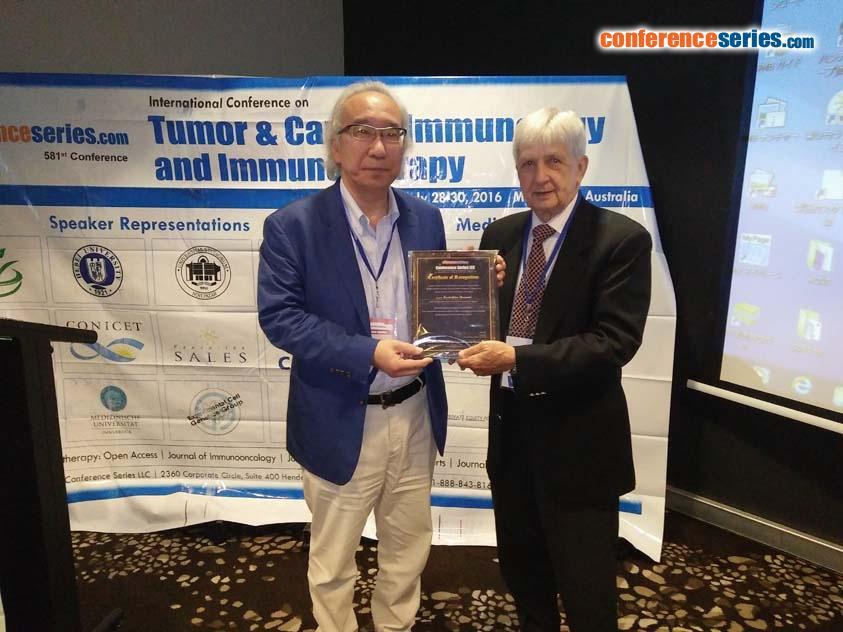
Kenichiro Hasumi
Hasumi International Research Foundation, Tokyo, Japan
Title: Intra-tumoral injection of dendritic cells induces specific anti- tumor killer T-cell activity
Biography
Biography: Kenichiro Hasumi
Abstract
A therapeutic approach to treat cancer patients with extensive disease was developed wherein tumor specific immunity is initiated in the antigenic enviornment of the individual tumor. Patients with advanced or treatment refractory cancers were enrolled in a safety/feasibility study combining a conventional treatment modality, intensity modulated radiotherapy (IMRT), with direct intra-tumoral injection of autologous dendritic cell. The rational for this approach follows. Radiation reduces cancer cell proliferation and leads to cell apoptosis and release of potential tumor antigens. Additional radiation effects include depletion of the number of immune regulatory cells and the release of proinflamatory cytokines that support the induction of an antitumor cytotoxic killer T-cells (CTL) by the intra-tumoral injected immature dendritic cells (iDC). The metastatic sites targeted for treatment were identified by PET-CT, injected with iDC combined with a cytokine-based adjuvant and KLH (keyhole limpet hemocyanin). 24hr later autologous T cells expanded in-vitro with anti-CD3 and IL-2 were administered by IV-infuion (AT). Seven (7) days later, the iDC injected lesions were radiated by IMRT and followed by repeat injection of intra-tumoral iDC and IV-infused AT. No toxicity was observed with iDC injection or AT infusion while occasional mild radiation related side effects were observed. After 6 weeks later of second iDC injection, PET-CT evaluated the efficacy if treated sites are still active and/or untreated new lesions are activated. The majority of patients developed KLH antibodies suggesting that the co-injected iDC are functional with the capacity to accquire antigens from their environment and generate an adoptive immune response. Both cellular and humoral immune responses were observed, the former by CTL activity to autologous tumor cell lines established from several patients, the later by increasing titer of anti-mesothelin antibodies in cells and serum samples drawn before and after treatment. Therapeutic responses were related to size and number of lesion present. In 1 year follow up 23/37 patients with 5 or less lesions that were 3 cm or less in diameter achieved complete response (CR) and 5 of this group PR. Delivery of this treatment regimen relative to prior therapy appears to influence response. In 57 cases of stage IV or recurrent NSCLC only one of 41 cases who chemo-resistant in their treatment history showed complete response (CR) while 4 of 6 cases who were chemo-naive reached CR. In summary this treatment protocol wherein radiation is combined with immunotherapy has shown to be effective in inducing therapeutic responses in patients with advanced cancers.


